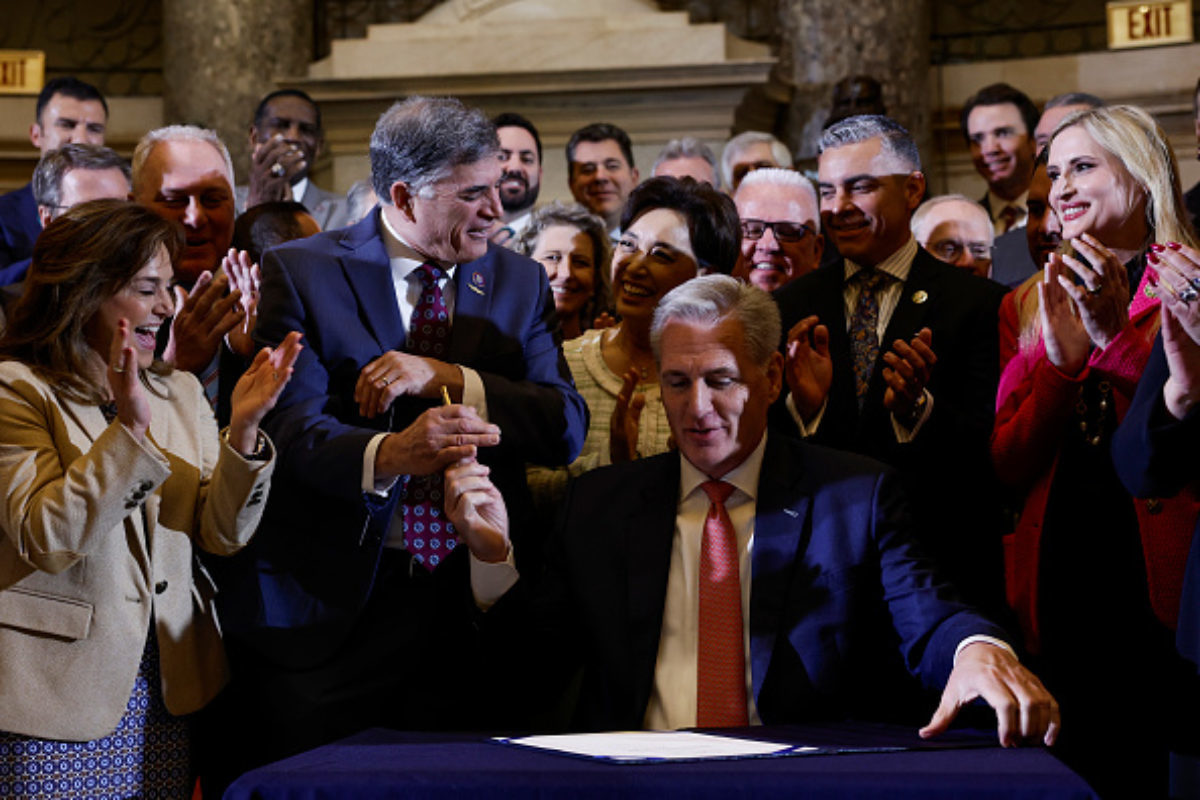Republican Ohio Sen. J.D. Vance introduced legislation Thursday to block the Washington, D.C., City Council’s Comprehensive Policing and Justice Reform Emergency Amendment Act of 2022.
The House version of the legislation was first obtained by the Daily Caller in March and focuses on the D.C. crime law, which reduces police power amid rising crime in the district. The Metropolitan Police Department (MPD) faces a historic staffing shortage and has struggled to recruit new officers.
The legislation passed the House 229-189. Fourteen Democrats voted with Republicans in passing the bill. The effort was originally led by Republican Georgia Rep. Andrew Clyde.
“Congress must exert our constitutional authority to keep our nation’s capital safe. It’s a disgrace that the capital of the most powerful nation on earth has become so dangerous, but this sad reality is exactly what we should expect when far-left activists are calling the shots. For the good of every American who lives in or visits this town, I urge my colleagues to support my disapproval motion,” Vance told the Caller after introducing the legislation in the Senate.
Tennessee Sen. Marsha Blackburn, North Carolina Sen. Ted Budd, Florida Sen. Rick Scott and Florida Sen. Marco Rubio joined Vance in co-sponsoring the legislation in the Senate.
Congress can exercise authority over D.C. local affairs, according to the District Clause of the Constitution (Article 1, Section 8, Clause 17), and Congress reviews all D.C. legislation before it can become law. Congress can change or even overturn D.C. legislation and can impose new laws on the district. (RELATED: House Passes Legislation To Block DC’s Anti-Cop Law)

Speaker of the House Kevin McCarthy (R-CA) gives a pen to the sponsor of H.J. Res. 26 bill Rep. Andrew Clyde (R-GA) during a bill signing ceremony at the U.S. Capitol Building on March 10, 2023 in Washington, DC. (Anna Moneymaker/Getty Images)
“As more violent criminals terrorize D.C. and MPD officers continue to leave the force in droves, another severely misguided law from the D.C. Council stands to worsen both Washington’s horrific crime crisis and troubling police shortage,” Clyde told the Caller in an exclusive statement. “Americans are counting on Congress to use its constitutional authority to prevent our nation’s capital from becoming the next San Francisco — but we must act quickly before it’s too late. Thankfully, the People’s House recently passed my resolution to repeal the Council’s anti-police law with bipartisan support.”
“It’s now up to the Senate to follow in our footsteps so we can send my life-saving, pro-police bill to President Biden’s desk. I thank Senator Vance for leading this critical effort in the Senate, and I call on all of his colleagues to join our fight to restore law and order to America’s capital city,” Clyde added.
The MPD has lost more than 1,100 officers since January 2020 and is currently operating in an officer deficit. (RELATED: EXCLUSIVE: House Oversight Committee Invites DC Officials To Testify On DC Operations, Crime)
The U.S. Senate passed a resolution of disapproval to block the Washington, D.C., City Council’s Revised Criminal Code Act of 2022, which would lower penalties for a number of violent criminal offenses. The Caller first broke the news of the legislation Feb. 2. The vote was 81-14, with a total of 33 Democrats voting with Republicans to pass the bill. (RELATED: EXCLUSIVE: House, Senate GOP To Start ‘DC Home Rule’ Vote To Block District’s New Crime Law)
The D.C. Council approved the Revised Criminal Code Act (RCCA) in November 2022. The RCCA reduces penalties for certain violent criminal offenses, including carjackings, robberies and homicides. Democratic D.C. Mayor Muriel Bowser vetoed the bill Jan. 4, but the council overrode her veto Jan. 17 by a vote of 12-1.
The legislation picked up support from the D.C. Police Union, which argued the act’s proposals are dangerous and would lead to more crime in the nation’s capital.


